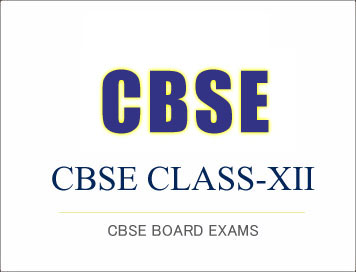CBSE Class-12 Compartment Exam 2019 : Question Paper-Legal Studies
Disclaimer: This website is NOT associated with CBSE, for official website of CBSE visit - www.cbse.gov.in

CBSE Class-12 Compartment Exam 2019 : Question Paper-Legal Studies
SECTION A
1. Identify the nature of transfer of property in case of ‘lease’.
(a) Transfer of ownership for price
(b) Transfer of limited ownership
(c) Transfer of ownership for some other property
(d) Transfer of ownership without consideration
OR
The scope of delegated legislation includes
(a) Parliament conferring law-making powers to the judiciary
(b) Parliament conferring law-making power to State Legislative Assemblies
(c) Parliament conferring law-making power to the executive
(d) Executive conferring law-making power to the Parliament
2. Akhil is caught stealing merchandise from a stall at the trade fair. The stolen goods are forcefully retrieved from him, resulting in injuries. Which of the following is true in this situation ?
(a) Using force to prevent a crime as part of one’s duty is not a criminal act.
(b) Causing injury to an assailant in self-defence is not a crime.
(c) The injury is caused with intent to take revenge and this act is criminal.
(d) Security guard’s behaviour is unethical as Akhil may have stolen due to some financial urgency.
OR
Amit, an accused, after production of an axe from a place, said that it was the weapon with which the deceased was killed. He made this statement to the police officer while he was in police custody. What is the relevance of this statement ?
(a) It amounts to confession.
(b) It is an extra judicial confession.
(c) It is irrelevant as he didn’t admit that he used the axe.
(d) It amounts to self-incrimination if he puts his statement in writing.
3. Workers at an automobile plant are protesting over the suspension of their union leader on disciplinary grounds. The dispute between the workers and the managerial staff may best be resolved through
(a) Conciliation
(b) Mediation
(c) Negotiation
(d) Arbitration
4. Ramlal is a vendor who sells street food from a cart in Kolkata. The local administration puts a ban prohibiting all street hawkers and vendors from using pavements to sell their commodities to decongest public spaces. Instead a special lane was developed by the name of ‘Chaat Street’ to relocate him and many such street food vendors on payment of a nominal license fee to which he resisted. Which of the following statements is true in the given situation ?
(a) The resistance by Ramlal is justified as it is taking away their right to livelihood.
(b) The government is powerful and can make any law.
(c) The government is sovereign and can make any law for common good.
(d) The ban is unjustified and violates Article 21.
5. The Department of Law, Bangalore University wishes to make changes in the syllabus of its B.A.LL.B. course. Which of the following will approve such changes ?
(a) State Bar Council
(b) Bar Council of India
(c) University Grants Commission
(d) Bangalore High Court
OR
Which amongst the given options was not an Indian legal practitioner in pre Advocates Act, 1961 ?
(a) Solicitors
(b) Vakils
(c) Pleaders
(d) Mukhtars
6. With regard to legal officers who act as advisors to the Central Government, pick the odd one out.
(a) Attorney General
(b) Advocate General
(c) Solicitor General
(d) Additional Solicitor General
7. Before commencing their Bar Professional Training Course, the students in UK are expected to
(a) Secure a first class degree in law
(b) Complete 12 qualifying sessions at their Inn
(c) Join an Inn of court
(d) Obtain pupillage
8. Vinod Nehra, an Upper Division Clerk in the Central Secretariat is passed over for promotions by his juniors in an arbitrary manner. He takes up the matter with his superiors but it remains unresolved. Name the body Vinod can approach for redressal of his grievance.
(a) Central Administrative Tribunal
(b) State Administrative Tribunal
(c) National Green Tribunal
(d) Supreme Court
Click Here To Download Full Paper
<< Go Back To Main Page
Courtesy: CBSE
